
Jonathan E. Rosenberg, MD, discusses how recent FDA approvals have revolutionized the treatment paradigm for locally advanced or metastatic bladder cancer.

Your AI-Trained Oncology Knowledge Connection!


Jonathan E. Rosenberg, MD, discusses how recent FDA approvals have revolutionized the treatment paradigm for locally advanced or metastatic bladder cancer.

Ying Liu, MD, MPH, and Tiffany Sia, MD, discuss the benefits of mainstreaming genetic testing in patients with ovarian cancer.
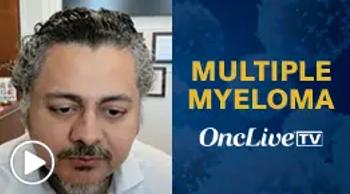
Saad Z. Usmani, MD, MBA, FACP, FASCO, discusses the design of the phase 3 CARTITUDE-4 trial in multiple myeloma.
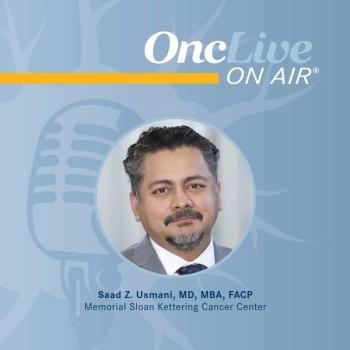
Dr Usmani details the FDA approval of cilta-cel for patients with relapsed/refractory multiple myeloma who have received at least 1 prior line of therapy.

Saad Z. Usmani, MD, MBA, FACP, FASCO, discusses the significance of the FDA approval of cilta-cel in relapsed/refractory multiple myeloma.
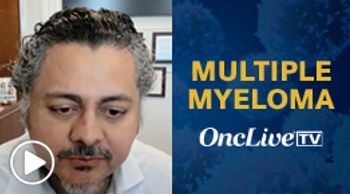
Saad Z. Usmani, MD, MBA, FACP, FASCO, discusses the risk-benefit profile of ciltacabtagene autoleucel in relapsed/refractory multiple myeloma.
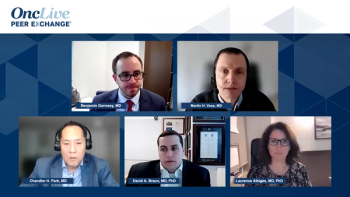
Focusing on the KEYNOTE-B61 trial evaluating lenvatinib plus pembrolizumab in the first line, a panel of medical oncologists react to clinical trial data on combination regimens in non–clear cell renal cell carcinoma.
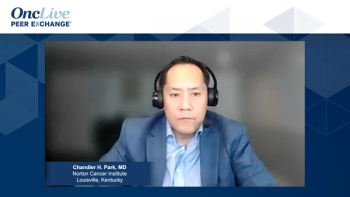
Chandler H. Park, MD, highlights cabozantinib monotherapy data from the SWOG 1500 study in non–clear cell renal cell carcinoma.

Saad Z. Usmani, MD, MBA, FACP, FASCO, discusses the optimal role for ciltacabtagene autoleucel in relapsed/refractory multiple myeloma.

Adjuvant treatment with the personalized neoantigen vaccine, autogene cevumeran, delayed pancreatic cancer recurrence in pancreatic ductal adenocarcinoma.

Saad Z. Usmani, MD, MBA, FACP, FASCO, discusses the FDA approval of cilta-cel for relapsed/refractory multiple myeloma.

The expert panel gives an overview of non–clear cell renal cell carcinoma, highlighting disease subtypes and treatment approaches.

Following a review of research on belzutifan in the advanced RCC space, the expert panel has a comprehensive discussion on treatment approaches and toxicity management.

Afami-cel displayed activity in a heavily pretreated population of patients with advanced synovial sarcoma or myxoid round cell liposarcoma.

Bernard H. Bochner, MD, FACS, discusses updates in the treatment of muscle-invasive bladder cancer and ongoing trials in the space.

Bernard H. Bochner, MD, FACS, highlights advancements in early-stage muscle-invasive bladder cancer and the necessity for multimodality approaches.
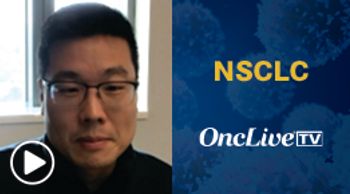
Paul K. Paik, MD, discusses the FDA approval of tepotinib for metastatic non–small cell lung cancer harboring MET exon 14 skipping alterations.

Focusing on belzutifan, Laurence Albigès, MD, PhD, reviews data from the LITESPARK-005 clinical trial, and Martin H. Voss, MD, discusses the ongoing LITESPARK-011 trial.

Experts on advanced RCC discuss the CONTACT-03 trial evaluating atezolizumab plus cabozantinib following immune checkpoint inhibitor treatment in patients with inoperable disease.

David A. Braun, MD, PhD, provides clinical insights on factors that influence treatment decisions in the second line and beyond for patients with advanced clear cell RCC.

Focusing on the LITESPARK-003 and LITESPARK-024 trials, Laurence Albigès, MD, PhD, discusses novel doublet regimens under investigation in the first-line setting in advanced renal cell carcinoma.

Medical oncologists provide clinical insights on managing adverse events associated with IO-TKI and IO-IO regimens in patients with advanced renal cell carcinoma.

The expert panel reacts to 55-month follow-up data from CheckMate 9ER assessing nivolumab plus cabozantinib in patients with newly diagnosed advanced RCC.

David A. Braun, MD, PhD, shares his takeaways from the network meta-analysis on lenvatinib plus pembrolizumab in advanced RCC, and Martin H. Voss, MD, discusses outcomes with cabozantinib following frontline lenvatinib plus pembrolizumab.

Chandler H. Park, MD, discusses the LEAP study investigating lenvatinib plus pembrolizumab in patients with renal cell carcinoma with brain metastasis.

Martin H. Voss, MD, gives an overview of the CLEAR study evaluating lenvatinib plus pembrolizumab in frontline advanced RCC and discusses recent subgroup analyses.
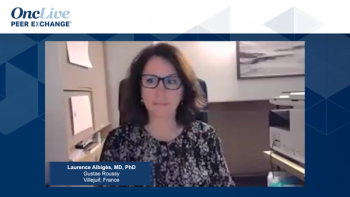
Laurence Albigès, MD, PhD, reviews recently presented data from CheckMate 67T, which is assessing subcutaneous vs intravenous nivolumab in patients with previously treated RCC.
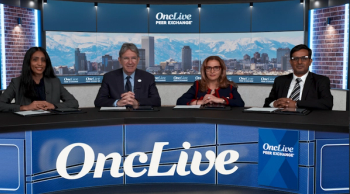
The expert panel recaps and synthesizes key points and conclusions from each presentation and discussion over the course of the program.
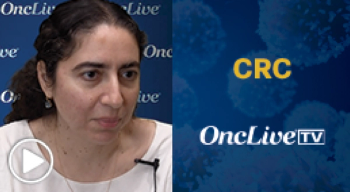
Rona Yaeger, MD, discusses the implications of data with second-line sotorasib plus panitumumab in KRAS G12C–mutated metastatic colorectal cancer.
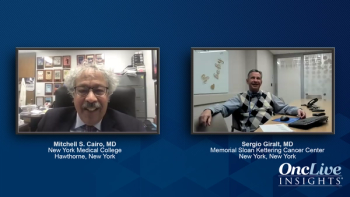
Experts share tips for treating patients with VOD with defibrotide, including strategies to ensure best possible outcomes.